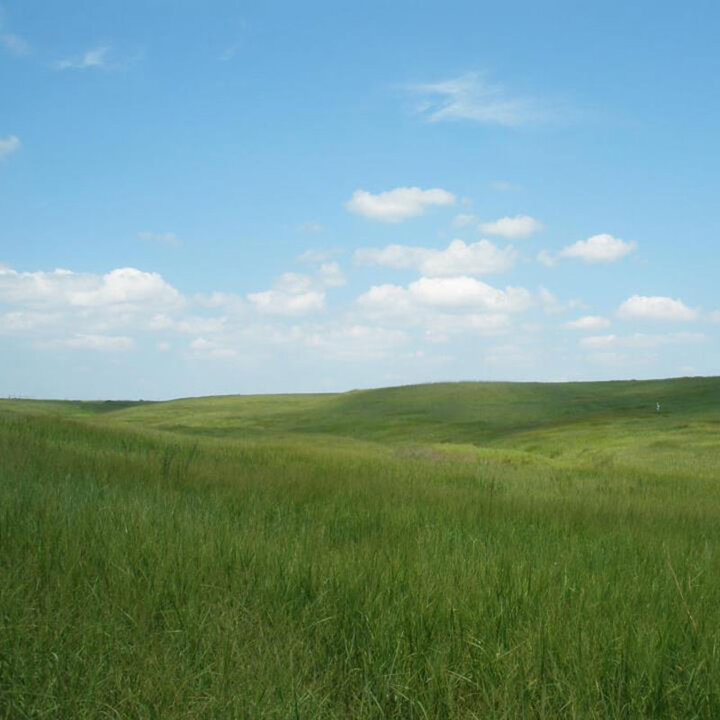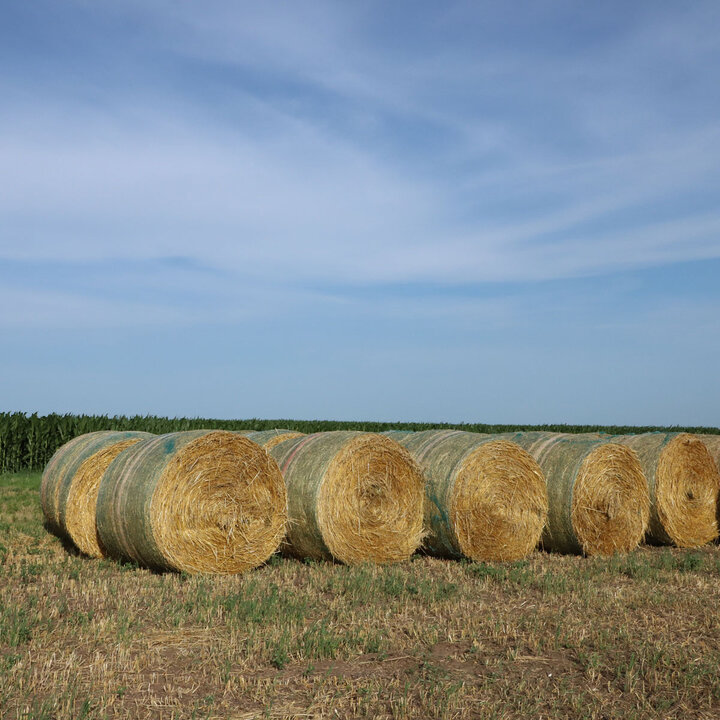The University of Nebraska–Lincoln's programs in range, pasture and forage sciences focus on the conservation and sustainable use of rangeland and forage resources. Nebraska offers exceptional field sites, some located in unique ecosystems found nowhere else globally, providing varied and ecologically significant plant and animal communities.
Students collaborate with internationally recognized faculty and a varied group of peers, engaging in a customized study program that aligns with their research interests and career aspirations. Past and current research projects span a variety of topics, including grassland and rangeland ecology, prairie restoration, rare plants, climate change, patch-burn grazing, fire ecology, animal nutrition, grazing management and wildlife habitat management.
Rangeland and Pasture Ecology and Management
The University of Nebraska–Lincoln has a distinguished history as a leader in rangeland and pasture ecology and management. Pioneers such as Charles Bessey, Frederic Clements, and John E. Weaver, who taught and conducted groundbreaking research at Nebraska, have made discoveries that continue to shape the study of rangelands. Current researchers at Nebraska build on this legacy, advancing rangeland research across multiple field sites in the state.
Rangelands are defined as "land where the indigenous vegetation is predominantly grasses, grass-like plants, forbs or shrubs, and is managed as a natural ecosystem." This field of study focuses on understanding and managing these vital ecosystems.
Rangeland ecosystems cover approximately 46% of Nebraska’s 49.5 million acres. Nebraska has four main prairie types: tallgrass prairie in the east, loess mixed-grass prairie in the central and southern regions, Sandhills mixed-grass prairie in the north-central area, and shortgrass prairie in the west and Panhandle. The distribution of these prairies is influenced by annual precipitation, soil characteristics and topography.
Nebraska’s rangelands provide numerous ecosystem services, including wildlife habitat, soil protection from wind and water erosion, rainwater filtration, underground aquifer recharge, recreational opportunities, and aesthetically pleasing landscapes. They also serve as a valuable forage resource for livestock producers, contributing approximately $12 billion annually to Nebraska's economy through the cattle industry.

Academic Programs
Undergraduate Students
The Center for Grassland Studies offers an undergraduate degree in grassland systems, with two options specializing in grassland ecology and management or grazing livestock systems.
Graduate Students
The Range, Forage and Turfgrass Sciences specialization prepares students for future careers focused on extensively or intensively managed grassland systems including native grassland ecosystems and improved grasslands for grazing, conservation management, and urban/recreational grassland ecosystems.
Online Programs
Grasslands Management Certificate through UNL and Great Plains Idea is a 12-credit graduate certification and provides current and future grassland professionals with the opportunity to gain knowledge on how to better manage grasslands of the Great Plains.
Grasslands Management Graduate Certificate
Online M.S. of Science in Agronomy specializing Range & Forage Sciences allows for the flexibility of a completely online degree. It requires admission into the Grassland Management Graduate Certificate program. Options are available for both a thesis and non-thesis course of study.
Scholarships, Fellowships and Awards

Undergraduate Scholarships
Grassland Systems Scholarships & Assistantships
Graduate Fellowships and Awards
Arthur William Sampson Fellowship is awarded annually by UNL's Center for Grasslands Studies to an outstanding graduate student with a special interest in pasture and/or range management in Nebraska.
William Ridgely Chapline Fellowship is awarded annually by UNL's Range, Pasture, and Forage Faculty to an outstanding graduate student for excellence and professionalism in range and forage science.
Hutchinson Travel Grant is awarded annually to graduate students in range, pasture, and forage sciences who present research results at professional meetings.
Office of Graduate Studies Fellowships
ARD David H. and Annie E. Larrick Graduate Student Travel Award
Clubs
Agronomy and Horticulture Graduate Student Association
AHGSA serves as the representative body for graduate students in the Department of Agronomy and Horticulture at the University of Nebraska-Lincoln. They work to promote interaction and a closer relationship among graduate students.
Range Management Club
The Range Management Club is an undergraduate club which fosters interaction amongst students interested in range and pasture. Graduate students are encouraged to attend to help mentor undergraduate students as they prepare for state and national meetings and careers or continuing education in rangeland management.
Seminars
Seminars are not only available in the Range, Pasture, and Forage group but through these units: